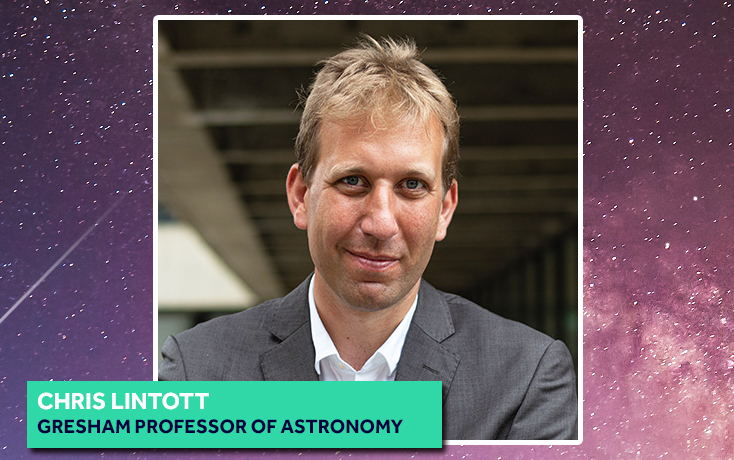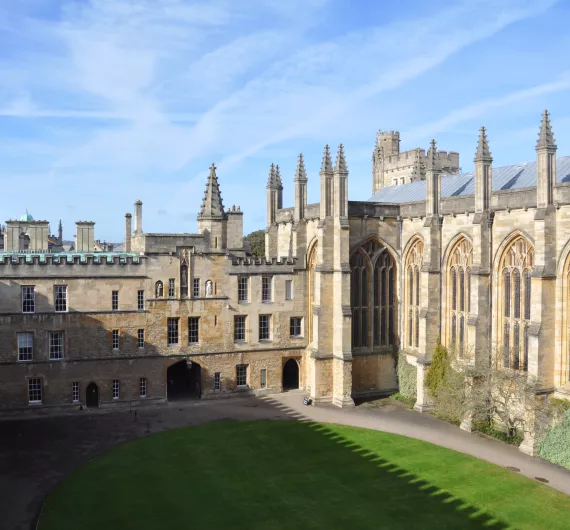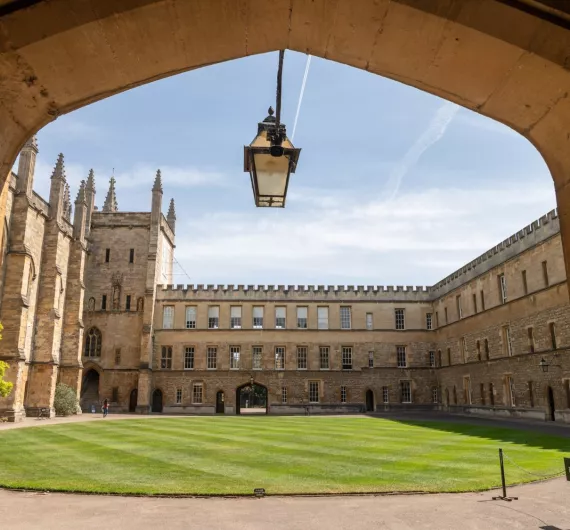Professor Chris Lintott appointed 39th Gresham Professor of Astronomy, a post once held by Sir Christopher Wren
Gresham College, London’s oldest Higher Education Institution, has announced the appointment of New College Research Fellow Chris Lintott as the 39th Professor of Astronomy at Gresham College.
Professor Lintott is a Professor of Astrophysics at the University of Oxford, and their Citizen Science Lead. He leads a citizen science project called Zooniverse, which has more than 2m registered global volunteers who take part in its projects. He is presenter of the BBC’s long-running ‘Sky at Night’, and writes frequently for the Times and the London Review of Books. He is also a lead editor for the prestigious Astrophysical Journal.

Lintott’s lectures will incorporate breaking news and new discoveries, and – thanks to the Zooniverse platform – will include opportunities for the audience to contribute to the science they’re hearing about.
Professor Lintott’s research interests are in observational astrophysics. He founded and led the Galaxy Zoo project and was awarded the American Astronomical Society’s Tinsley award for research of an exceptionally creative character. He has also been involved in machine learning for identifying unusual objects, and a novel study of the properties of interstellar asteroids which are visiting the Solar system. Today his main activity is Principal Investigator for the Citizen Science platform Zooniverse.
Professor Chris Lintott said:
“I’m thrilled to be appointed Gresham Professor of Astronomy, following in the footsteps of Martin Rees, Colin Pillinger and my immediate predecessor, Katherine Blundell. I want to use the lectures to share what is becoming a golden age of astronomy with as many people as possible, both in person and online. Each lecture will include the latest observations from our fabulous new telescopes, and together we will explore how our understanding of the Universe is changing. Contemplating the cosmos is good for you – as I hope I can demonstrate!”
As Gresham Professor of Astronomy, Professor Chris Lintott will continue the 426-year-old tradition of delivering free lectures aimed at the public within the City of London and beyond. Gresham College live streams lectures online and delivers them to physical audiences in London, with over 8 million views of lectures online last year. Some 3000 past lectures are freely available to view on the College’s website. Among our famous Professors of Astronomy are: Sir Christopher Wren, Lord Martin Rees, Heather Couper, Colin Pillinger and John D Barrow. The outgoing professor is Professor Katherine Blundell OBE.
Professor Martin Elliott, Provost of Gresham College, said:
“I am delighted to welcome Professor Chris Lintott as the 39th Professor of Astronomy at Gresham College. Chris fought off a brilliant field to get the job, demonstrating the wonderful communication skills which have made him such a popular presenter of The Sky at Night on the BBC...
An established, widely published and prize-winning academic with a background in astrophysics, he is also committed to citizen science which he carries out through the Galaxy Zoo and Zooniverse projects. We are privileged to have him join us and I have no doubt our audiences are in for a treat.”
More about Gresham College’s work:
A series of six lectures a year is delivered by each of the College’s ten Professors, and usually three lectures by each of our five Visiting Professors. There are a further 40 or so individual lectures from a range of illustrious speakers selected from the worlds of academia, the arts, law, medicine, politics and industry.
In 2023-4 Professor Lintott will speak about Discovering the Universe. This series tells the story of our cosmos through exploring six fundamental discoveries: that of galaxies beyond our own, via probes sent to reveal the remarkably diverse wonders of our Solar System from the fountains of Saturn’s tiny moon Enceladus to Earth’s hellish twin, Venus, of the sudden appearance of interstellar visitors, the strange pulses received by the first radio telescopes and the twinkling of a star that misbehaved, and the revelation of detecting the oldest light of all. Together, these discoveries take us to the forefront of modern astronomy, and to the state-of-the-art in our understanding of the cosmos.
Discover more about New College



